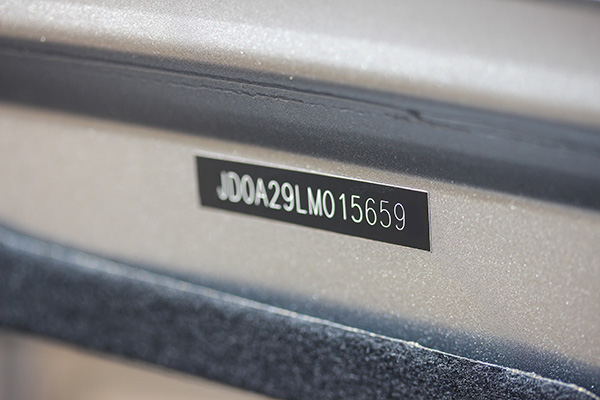
The Vehicle Identification Number, or VIN, is like your car’s fingerprint. Unique to every vehicle, this 17-character code can reveal a treasure trove of information about your car’s history, specifications, and authenticity. Whether you’re buying a used vehicle, ensuring a recent purchase is legitimate, or simply curious about your car’s origins, the VIN is the key to unlocking crucial details. But what exactly can you learn from it? Let’s break down the essential information you can extract from your car’s VIN.
1. Basic Vehicle Information
At first glance, the VIN may seem like a random assortment of letters and numbers, but each character has a specific meaning. The first three characters are the World Manufacturer Identifier (WMI), which reveals the manufacturer and country where the car was built. For example, cars made in the U.S. usually start with numbers like 1, 4, or 5, while those from Japan may start with a "J." This code not only helps you verify the vehicle's origin but also ensures that you’re dealing with the correct manufacturer, which can be especially useful when verifying imported or rare cars.
2. Vehicle Model and Engine Type
Want to know more about your car's engine, model, and body style? The fourth to eighth characters in the VIN offer detailed information regarding the vehicle’s specific model, engine type, and trim level. These characters are unique to each car and are essential if you're trying to order parts, especially if your car has multiple engine or trim options.
By decoding this section of the VIN, you can confirm whether the vehicle’s listed specs match what’s actually under the hood. For instance, if you're looking at a car that's marketed as a V6 but the VIN shows it's a four-cylinder model, you’ll know there’s a discrepancy.
3. Check for Accidents and Repair History
One of the most valuable insights you can gain from a VIN number comes when you run it through a vehicle history report service. By doing so, you can uncover the car’s accident history, including details about repairs, flood damage, or whether it’s been salvaged. This is particularly useful when purchasing a used car, as it allows you to check if the vehicle has been in any serious collisions or has undergone major repairs that could affect its safety or longevity.
A clean accident history can add to a vehicle's resale value, while multiple accident reports might give you pause before making a purchase. Always verify that the VIN on the car matches the one on the report to avoid any mix-ups.
4. Recalls and Safety Issues
When automakers discover defects in their vehicles, they issue recalls to fix the problem. If you're unsure whether your car is affected by any recalls, checking its VIN can provide the answer. By inputting your VIN into a recall database, you can easily see if your car is subject to any active recalls. Whether it's an airbag replacement or an issue with the fuel system, staying on top of recalls is essential for keeping your vehicle safe and running efficiently.
This information can also alert you if the car you're considering purchasing has unresolved recalls, giving you leverage in negotiations or the option to walk away entirely.
5. Theft and Title Information
Worried that the used car you’re eyeing might have a shady past? The VIN can help you confirm whether a vehicle has been stolen or has a clear title. By running a VIN check, you can see if the car has been reported stolen and whether it has any title issues, such as being branded a lemon or salvaged. This is critical, as driving or buying a stolen vehicle can lead to significant legal problems, and purchasing a car with a compromised title can lower its value or even prevent you from registering it.
Always verify that the title status matches the information provided by the seller to avoid potential fraud.
6. Production Year
The 10th character of the VIN tells you the production year of the vehicle. While this may seem straightforward, it's especially useful for confirming the model year of your car, as sometimes cars sold in one year may technically be from the previous model year. This knowledge can also help you determine warranty periods or the availability of replacement parts.
Knowing the exact production year can be especially beneficial when it comes to assessing the vehicle's value, as even a one-year difference can significantly impact its resale price.
7. Manufacturing Plant Location
Lastly, the VIN reveals where your car was manufactured. The 11th character identifies the assembly plant, which can help you trace the car's manufacturing journey. Different manufacturing plants can have varying reputations for quality control, and knowing where your vehicle was built can offer insights into its production standards.
For those who enjoy digging into the origins of their vehicle, the manufacturing plant detail is a fascinating tidbit that ties your car back to its roots.
Stay informed about your vehicle! Stop by Fox Run Auto for expert advice, vehicle checks, and all the insights you need to make the best decisions for your car.